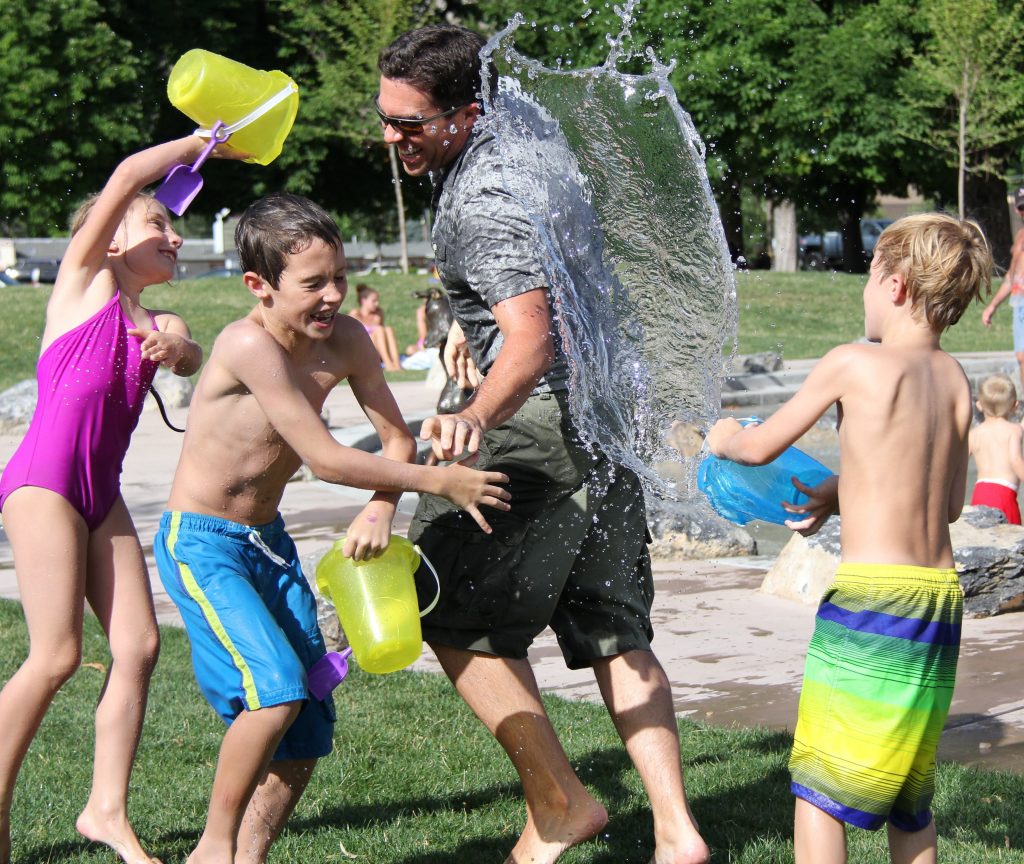This piece will kick-off a three-week series highlighting several top summer camps in the country. For more, head to our Ultimate Sleepaway Camp Guide.
There’s more to camp than just swimming, arts & crafts, sports and songs around the campfire. Going to camp has many benefits for children that go beyond all the fun they will have. Here are just a few of the reasons why the camp experience is so valuable for children, from Jess Michaels, Director of Communications for the American Camp Association, NY and NJ.
Break from technology
According to a survey by the Kaiser Family Foundation, children ages 8-18 spend an average of 7 hours and 30 minutes a day using technology, which is more than 53 hours a week. Now more than ever, children need camp to disconnect from social media and engage in interpersonal connections. Summer camp is one of the last unplugged environments, where campers leave their iphones and iPads at home and talk, not text, with their friends.
Creativity
Often cited as a soft skill 21stcentury employers are looking for in their employees, camp offers numerous opportunities for children to explore their creative side from jewelry making to woodshop to creating new songs for color war.
Collaboration
Collaboration is another soft skill employers are looking for in future employees. Camp is all about collaborating and being part of a community. Children learn to work together to clean up their bunk after breakfast, on the athletic field during field sports or getting each person over the climbing wall in trust exercises.
Independence
When children go to day or sleepaway camp, they are given the opportunity to grow more independent. They are able to make their own decisions such as what food to take from the salad bar or what elective activity to participate in. These small decisions help children think independently which helps build self-esteem and confidence.
Play
Research by The American Academy of Pediatrics’ Clinical Report shows that play is important for developing a set of 21st century skills, including social, emotional, language and cognitive skills, all needed by the next generation in an economically competitive world that requires collaboration and innovation. When during the school year children can be overscheduled, camp give children plenty of time for unstructured play within a structured environment.
Confidence
American Camp Association research has found that 92% of campers said that camp helped them feel good about themselves and 70% of parents reported that their child gained self-confidence at camp. When a child goes down the zipline after being apprehensive or finally gets a target during archery after weeks of practicing, he gains confidence by accomplishing something he didn’t initially think he could do.
Resilience
It is important for children to develop resilience for coping with the obstacles and stresses that inevitably will happen in their lives. At camp, children are often problem solving, adapting to change, and overcoming hurdles such as homesickness.
Leadership
There are many ways children gain leadership skills at camp. From teaching a new camper the camp songs to being a “big brother” or “big sister” to the youngest campers to being a captain for color war, children are learning to be leaders in their camp community which is a skill that will help them succeed in life.
Sense of community
Children become part of a community at camp. They learn to share in camp traditions, work together, support each other, eat together and at overnight camp, live in bunks together. Campers and staff become like family. For the majority of campers, being at summer camp is the first time they have lived with or eaten every meal with a group of people other than their family. As a community that lives, eats and participates in activities together, campers must learn to adapt, make decisions as a group and respect other people’s needs.
New experiences
Each day, children are trying something new at camp. Whether it’s learning how to dive into the pool, play a new sport or plant vegetables in an organic garden, children are learning new skills and experiencing something different. Research by the American Camp Association shows that 63% of campers continue to participate in some of the new activities he or she learned at camp when they get home.
Jess Michaels is the Director of Communications for the American Camp Association, NY and NJ, a not for profit organization dedicated to enhancing the summer camp experience. Parents looking for a camp can contact the American Camp Association, NY & NJ for free, one-on-one advice in finding the right camp for their child.

